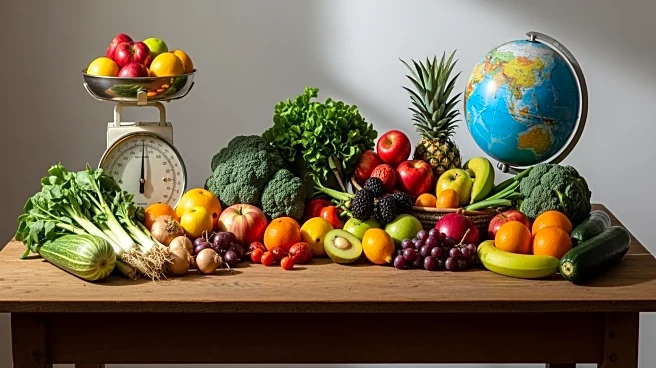What's Happening?
Recent discussions on the Ag Commodity Corner+ Podcast highlighted the impact of political headlines, trade speculation, and shifting commodity markets on U.S. agriculture. Corn prices remained stable
despite uncertainty, while soybeans showed strong performance due to speculation about China's potential return to the U.S. market. Cattle markets faced pressure from talks of increased beef imports from Argentina and Brazil, and potential reopening of the Mexican border for cattle imports. Weather challenges and long-term herd decline continue to drive stronger cattle prices, but short-term policy shifts and trade discussions have introduced uncertainty.
Why It's Important?
The developments in trade talks and market trends are crucial for U.S. farmers as they navigate a complex landscape of commodity prices and international trade relations. The potential return of China to the U.S. soybean market could provide a much-needed boost to soybean prices, benefiting producers. However, increased competition from beef imports poses challenges for domestic cattle producers, who are already dealing with weather-related issues and herd declines. These factors underscore the importance of strategic decision-making in agriculture, as farmers must adapt to both domestic and international market dynamics.
What's Next?
As trade discussions continue, U.S. farmers will be closely monitoring potential agreements and policy changes that could affect commodity prices and market access. The outcome of diplomatic meetings between U.S. and Chinese leaders could significantly influence soybean market trends. Additionally, any changes in beef import policies could impact domestic cattle markets, prompting producers to adjust their strategies accordingly. Farmers will need to stay informed and agile in response to these evolving conditions.
Beyond the Headlines
The current situation highlights the interconnectedness of global trade and domestic agricultural markets. It emphasizes the need for U.S. farmers to remain adaptable and informed about international developments that can have direct impacts on their operations. The role of trade policy in shaping agricultural markets is increasingly evident, and farmers must consider both economic and geopolitical factors in their decision-making processes.










